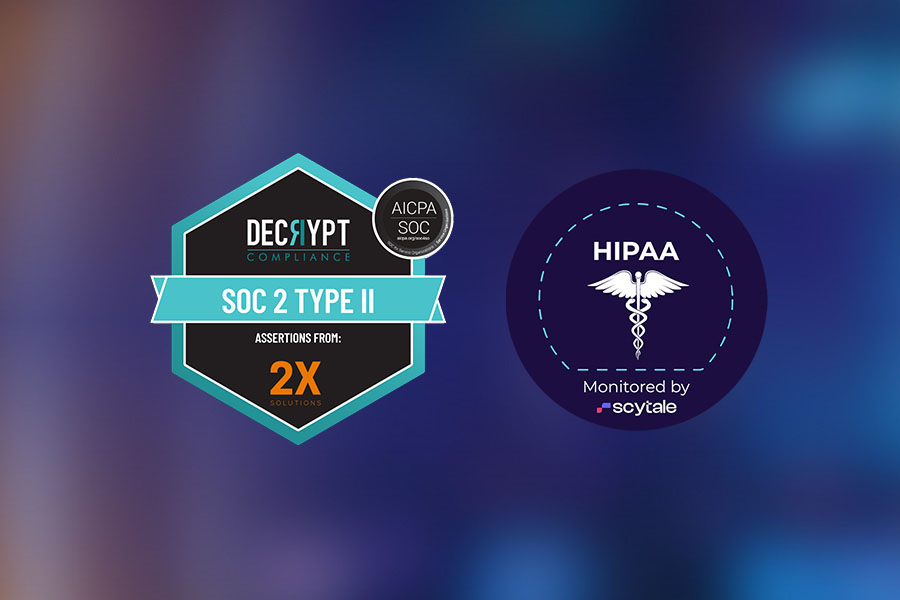If you run an auto dealership, you’re probably aware of the challenges that threaten automotive businesses, like global instability and the risk of a national recession that may hurt sales. To stay on top in this highly competitive industry, you must provide outstanding service that targets each potential buyer’s needs.
Many thriving dealerships already rely on conversational AI in automotive sales. Conversational voice AI is an innovative tool that can revolutionize your customer engagement and help your business thrive.
Applications of Conversational AI in Automotive Sales
Efficient customer experience automation (CXA) is the backbone of a successful auto dealership’s service plan. You likely already use basic tools like online bookings and automated emails or text messages. Many businesses also use AI chatbots.
Conversational voice AI takes customer experience automation one step further. It uses advanced natural language processing (NLP) to talk to leads and clients, much like a human service rep.
This innovative, dynamic technology can take over a big part of routine customer service, improve client satisfaction, and help you close more deals. You may rely on conversational AI for:
- Scheduling test drive appointments. A voice AI assistant books and confirms test drives reminds customers of pending appointments, and handles cancellations. Customers don’t need to wait for a human representative and can schedule or cancel a test drive anytime, for instance, when they’re behind the wheel and are restricted to hands-free technology.
- Personalized vehicle recommendations. Conversational AI analyzes a customer’s vehicle preferences based on their data or previous inputs. It then suggests the car models that would best fit the client’s lifestyle and budget, including brands, models, make years, and payment options.
- Lead nurturing. Conversational AI initiates personalized follow-up calls to potential clients, providing them with valuable, custom-tailored information. Unlike a human service rep, it can make an unlimited number of calls and never becomes discouraged when faced with rejection.
- 24/7 real-time assistance. Conversational voice AI manages your front desk 24/7, providing leads and clients with instant help anytime. Your clients will receive a meaningful, natural-sounding voice response to their inquiries, even at night or on a weekend.
- Implementing marketing campaigns. You can use conversational AI to personalize your marketing campaigns and address specific customer segments (e.g., motorcyclists or customers interested in SUVs).
Of course, voice AI goes far beyond boosting sales. For instance, an AI-powered system can remind your clients to set up maintenance appointments. AI platforms even tailor maintenance recommendations to a specific car model’s frequently occurring issues. This reminder schedule helps customers save money on repairs while fostering loyalty to your business.
Benefits of Implementing Conversational AI

Efficient, flexible conversational AI can give your automotive business a massive leg-up. This revolutionary technology streamlines service, helps cut costs, and improves customer experience. Use conversational AI in automotive sales for:
- Enhanced customer engagement. Unlike standard automated text messages or emails, conversational AI creates natural, personalized interactions based on each customer’s data and their previous contacts with your business. This will help you build rapport with your customers and strengthen their relationship with your brand.
- Operational efficiency. Conversational AI takes over routine tasks, leaving your sales team free to focus on closing deals, developing marketing strategies, and other advanced, high-value work. AI-powered platforms also reduce human errors that stem from work overload.
- Data-driven insights. Conversational AI helps you collect and analyze client data. You can leverage this information to make smarter business decisions and devise more efficient sales plans.
- Scalability. With conversational AI, you don’t need to hire more staff every time your customer base grows. AI-powered tools will cover the bulk of routine, repetitive customer interactions, paring down your team’s workload to more meaningful and strategic tasks.
Cost Considerations
If you’ve never used a conversational AI platform before, you may be wondering, “How much will this cost me, and is this a worthwhile investment for my automotive business?”
Sure, transitioning to a business model that relies on conversational voice AI involves some upfront costs. However, once you’ve made the adjustments and have the system running, you’ll likely discover that the cost savings and potential additional sales far outweigh your initial expense. According to a recent study by IDC, on average, businesses gain over $3.5 for every $1 invested in AI.
When you integrate conversational AI into your marketing strategy, consider the following:
- Initial setup costs. Conversational AI services typically charge a setup fee. On top of that, you’ll probably pay a monthly service fee. Integrating the AI platform with your existing CRM may involve an additional cost.
- Ongoing maintenance expenses. In addition to the basic setup and service, you may need to pay for system upgrades down the road. AI platforms need continuous training and optimization for top performance.
- Training and development. Your staff will need education and training to adapt to AI-powered workflows. This likely means investing in a hands-on course and paying for training hours. It may take your workers some time to start using the new system effectively.
- Return on Investment (ROI). You’ll need to evaluate the potential gains of transitioning to conversational voice AI (e.g., how many more vehicles AI-powered tools may help you sell) vs. the costs of setting up an AI-based service and sales platform.
Implementation Strategies

Are you eager to reap the benefits of conversational AI in automotive sales? Propel your automotive business into an AI-powered future with these basic steps:
- Selecting the right AI platform. Choose a service that matches your business goals and your customers’ needs. Don’t hesitate to contact the business and ask how their solutions work specifically for the automotive industry.
- Integration with existing systems. You want a platform that will work effortlessly with your current CRM and sales tools rather than disrupt your existing systems. At 2X Solutions, we offer seamless integration with your existing CRM.
- Continuous monitoring and optimization. To benefit from the full potential of conversational voice AI, you’ll need to assess the performance of your AI-based workflows and update them as needed. For instance, your AI-powered system may need additional training to respond to certain keywords or phrases.
- Compliance and data security. When using any tool that collects private data, make sure you protect your client’s sensitive information. You must use ethically and legally sourced data to train AI platforms, ensure that only authorized staff can access your AI-based systems, and follow data protection guidelines.
It’s normal to experience some hiccups when you start working with conversational voice AI tools. For instance, your employees may mistrust AI technology or find it difficult to adjust to new workflows.
Motivate your staff by emphasizing that conversational AI is here to take over repetitive tasks like initial follow-up calls. Your team will most likely embrace AI once they realize how these tools handle lower-value tasks and reduce burnout.
While the system is adjusting, you may run into issues like AI misinterpreting questions or even experience downtimes that disrupt service. That’s why you should choose a service that offers robust customer support.
Capture Quality Leads and Make More Sales With Voice AI
At 2X Solutions, we help you harness the power of conversational AI in automotive sales. Discover how our AI-powered platform can transform your marketing and customer service. Get in touch to learn more about our services, and try our demo today.






